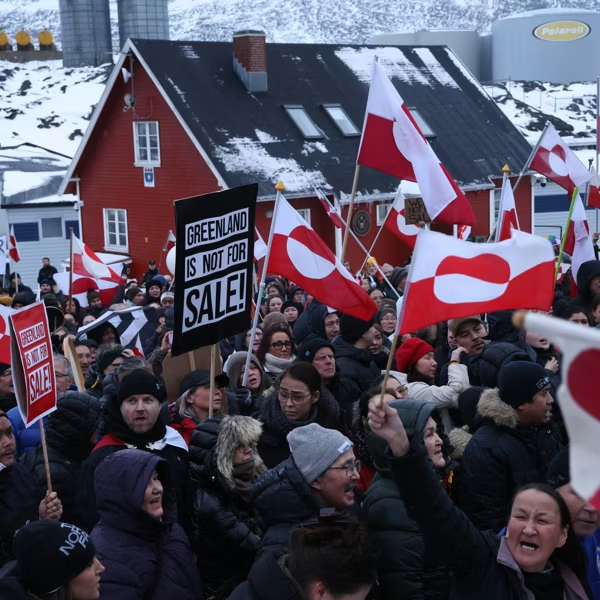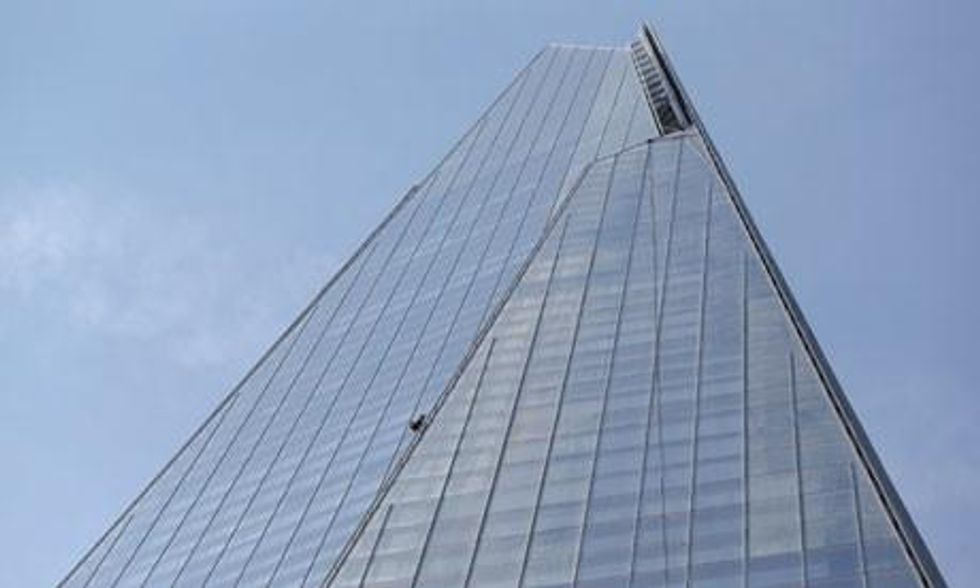The poles of our planet remain the only major regions untouched by the pollution and degradation that inevitably follows in human footsteps. That alone is sufficient reason for protection of the Arctic from the drillers. If you think that sounds impossibly idealistic, consider the fact that the Antarctic already has protection and that the world's nations may well on Tuesday declare the largest marine reserve in the world around the southern continent. It can be done.
So, we have a rush in one of the world's last, fragile paradises, made possible by fossil fuel burning, to pump out more fossil fuels that we can't burn without completely frying the planet. Compared to that, free-climbing the 310m-tall Shard looks like the definition of sanity.
The threat to the Arctic is so drowning in irony that it would be funny if the stakes were not so high. The Arctic ice cap has for a century or more prevented virtually all attempts to drill for the large oil and gas reserves buried below the sea floor.
But the relentless exploitation of fossil fuels since the industrial revolution, and the carbon dioxide pumped into the atmosphere as a result, has driven global warming to shrink the ice cap by half in just four decades. The burning of fossil fuels has melted the ice and opened the Arctic to the exploitation of more fossil fuels.
A further irony is that of all the regions on Earth, the poles heat up far faster than any other as greenhouse gases warm the climate. We have not even seen the half of it yet, because the heating lags behind the carbon emissions. The sediments in a remote meteorite crater in Siberia recently revealed that the last time carbon dioxide was as high as today - 3m years ago - Arctic temperatures were 8C higher than now.
The Greenpeace climbers on the Shard are targeting the three Shell offices that surround the skyscraper. Shell has invested heavily - $5bn - in the Arctic with little to show to date but embarrassing mishaps and bad publicity. But they are far from alone: half of the big six energy companies that supply UK homes with energy are part of the dash into the Arctic. Russia's energy giants, along with their poor record on spills, are also charging ahead, as are the US majors like ExxonMobil and ConocoPhillips. Even saintly Norway can't resist.
A key problem in exploiting the Arctic is what happens if - or more likely when - something goes wrong. The region is remote, meaning mobilising rescue and repair efforts is tough. The perpetual darkness and deep freeze of winter means clean up efforts would be forced to stop for large parts of the year.
Furthermore, the colder temperatures mean that spilled oil breaks down far more slowly than slicks in balmier waters. The response plans revealed so far are about as comforting as the copy-and-paste nonsense that were meant to protect Gulf of Mexico before the Deepwater Horizon catastrophe.
The final grotesque irony is that, if the world's nations are true to their word, we can't possibly burn the oil and gas that could come from the Arctic. A report in April on the global carbon bubble showed how at least two-thirds of the oil, coal and gas reserves already held by fossil fuel companies will have to remain underground if the world is to meet existing internationally agreed targets to avoid the threshold for "dangerous" climate change.
So, we have a rush in one of the world's last, fragile paradises, made possible by fossil fuel burning, to pump out more fossil fuels that we can't burn without completely frying the planet. Compared to that, free-climbing the 310m-tall Shard looks like the definition of sanity.




